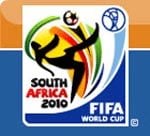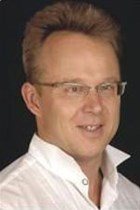
Top stories





Marketing & MediaAds are coming to AI. Does that really have to be such a bad thing?
Ilayaraja Subramanian 17 hours

More news

















'Off-the-field strategies and objectives'
In his book Japan, Korea and the 2002 World Cup, author Wolfram Manzenreiter recalls the period leading up to kickoff: "In the 1990's and well into the early part of the millennium when preparations for the World Cup were in progress, South Koreans were slowly recovering from the economic crisis of the late 1990. That the signing of the IMF bailout has been dubbed the '2nd National Shame Day' reveals the trauma and significance of this period for the nation. More than a mere economic disaster, the IMF crisis sparked a social calamity that disrupted all levels of Korean society. Unemployment rates skyrocketed, the number of homeless increased, the middle-class was severely weakened, and overall morale in society was extremely low."
Consequently, a great deal of emphasis was placed on re-strengthening the economy and building the pride of the nation through hosting this mega event. In an article printed in The Korea Herald, analyst Sim Sung-Tae effectively illustrated the "off-the-field strategies and objectives" of many Koreans during the time of the World Cup: "Many Koreans believe that the World Cup might be the best way to promote the country to the rest of the world, which still has a lasting image of Korea as a poor peasant country that was separated into two pieces after the Korean War (1950-53). Many foreigners still do not know that in 1996 Korea became a member of the Organization of Economic Cooperation and Development (OECD), which is often called the social club of advanced countries."
Numerous newspaper articles at the time illustrated the hopeful viewpoint of many Koreans that the World Cup would boost their image to the world, and that Koreans would be receiving recognition from the outside world that they were a "modern" nation, and thus boost the economy through foreign investment and tourism. As former host of the 1988 Seoul Olympics, South Korea was fully aware of the potential for such events to speed up the process of rapid economic modernisation.
Kim Dae-Jung, president of South Korea at the time, captured the initiatives of the South Korean government when he spoke of the World Cup as "a chance [for Korea] to make the country prosper diplomatically, economically and cultur¬ally, in sectors like tourism and science".
As South Korean deputy prime minister Jin claimed, the government regarded hosting the World Cup as a chance for, "the brand-making of Korea, rather than making money directly". Mass media reiterated the rhetoric: "global citizens began to realize that Korea managed to move on from a minute country in East Asia to a powerful nation running toward the center of the world."
This was the reason for initiating the National Council for a Better Korea (NCBK). The mission statement read: "All the world's attention is focused on the fact that the World Cup is the first to be held in Asia and that it is jointly hosted by Korea and Japan. We need to boast of our strengths; and our weaknesses we need to decisively correct. Through this event, there is no better chance to express our confidence about our national economy and our reputation. We will receive greater attention through this event and that attention will strengthen our pride and recharge our fuel towards improvement. And to make it our vital power, people will experience what Korea is like through our living environment and form an opinion and impression about Korea. That is the reason why the NCBK is needed. We're making an endeavour to make Korea's special traits and characteristics known. Since we are the first contact most foreigners will have, we must try to keep our moral standards so that we can leave a good first impression."
In preparing for the big event, Korean citizens were unified in wanting to improve certain conditions in its civic society. One editorial printed in the daily Chosun Ilbo entitled 'Standards of thinking' read: "The Chosun Ilbo has been running a 'Global Etiquette Series' since the end of 1998, marking the 1080th story on the opening day of the World Cup. While various real-life stories appeared, many were deploring ignorance of social order and lack of concern for others. If the nation at least makes sure to say sorry when bumping into others, not to spit on the street and keep reasonable ambiance in restaurants, the living standard of the country would take a step forward. Respecting social order is the way to make a better living." The 'Global Etiquette Series' included a variety of activations, such as:
Yield the right of way: Practising 2010 values
Given the recent spate in road rage incidents, can 2010 serve as a catalyst for activating citizen courtesy and making time to give way to other motorists rather than to insist on arriving first in the daily rat race? A 2010 Yield-the-Way Campaign could go a long way towards giving credence to Madiba's statement that there are "few places in the world offer you that special hospitality for which the South Africans have become famous. We invite you with open arms to our wonderful country."
